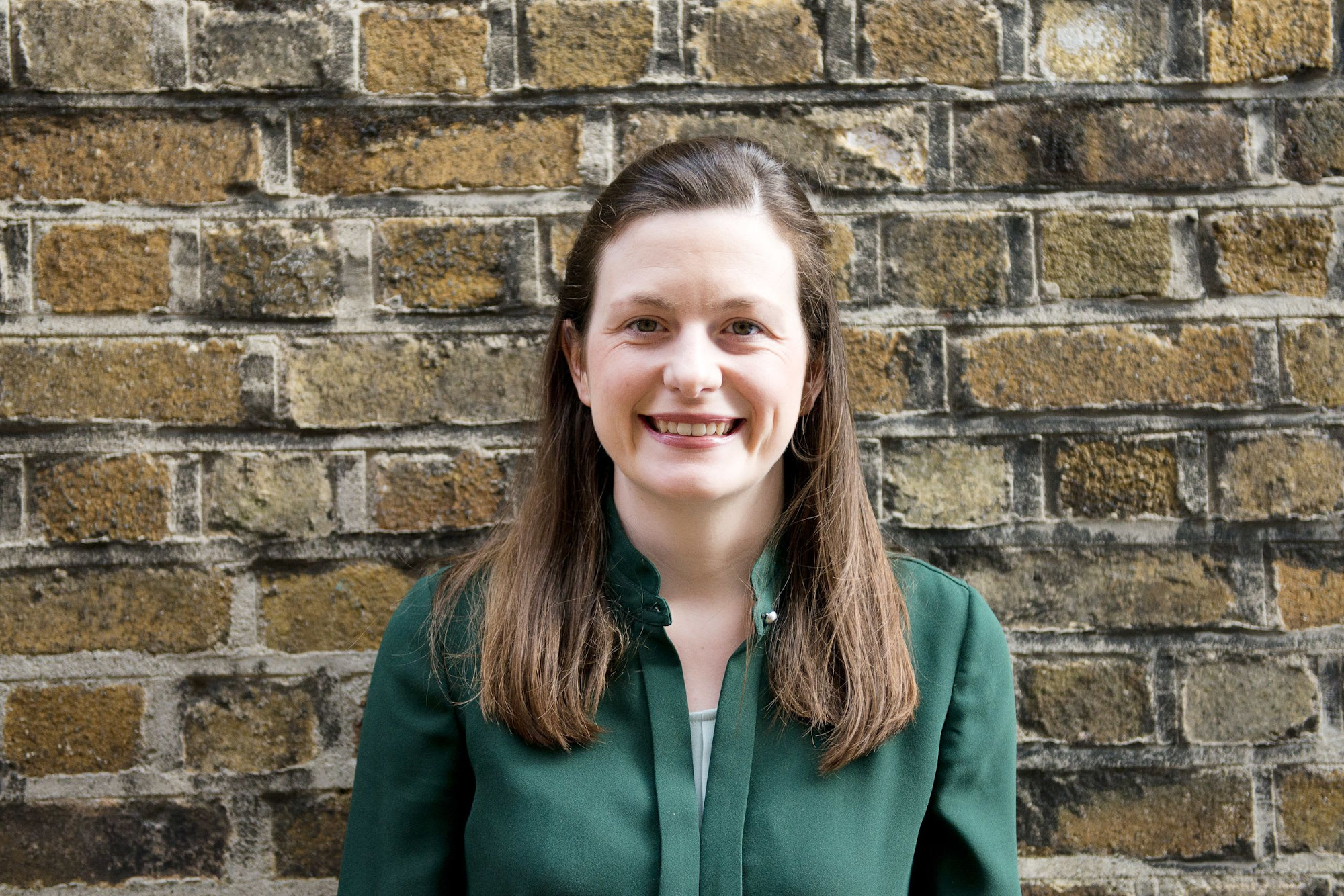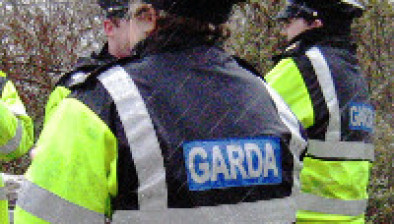Lawyer of the Month: Katie Mannion

Pictured: Katie Mannion, managing solicitor at the Irish Refugee Council's independent law centre.
At the beginning of this month, 285 people seeking international protection were moved from a makeshift campsite outside the International Protection Office (IPO) in Dublin’s Mount Street. Weeks later, 55 asylum seekers set up camp along the Grand Canal just hours after another tent clearance.
Those moved had been informed that, despite Ireland’s obligations to provide “material reception conditions”, the State did not have any accommodation to offer them.
The failure of the State to provide newly-arrived asylum seekers with accommodation, resulting in this situation of street homelessness, is clearly a source of concern for the Irish Refugee Council (IRC) and for Katie Mannion, managing solicitor at its independent law centre.
Ms Mannion leads the centre’s work on strategic litigation and early legal advice for asylum seekers, having previously worked as a solicitor for the Immigrant Council of Ireland for more than five years.
She concedes that the scale of recent arrivals has caused anxiety in some sectors, but considers that anxiety misplaced. She is concerned that protests at proposed accommodation centres have delayed the availability of accommodation and is deeply concerned for the health and safety of many arrivals who are sleeping rough on the city’s streets.
“Certainly, there’s been a rise in forced migration globally, and as a result, a higher number of people seeking international protection in Ireland,” she says. “And the reaction of the State results from a failure to be adequately prepared to accommodate the people who are arriving. That, I think, is the real crisis.”
While newspaper headlines tend to focus on the tensions sparked by the need to house asylum seekers during an unprecedented housing and homelessness crisis in the country, Ms Mannion points to a Red C poll commissioned by the Ukraine Forum in April this year which shows the support of a significant majority of the community for refugees, for building refugee housing and for tackling arson attacks on refugee centres in a robust way.
There are 114 million people forcibly displaced worldwide because of persecution, conflict, violence, and human rights violations.
In 2023, Ireland received 1.16 per cent of the total number of international protections claims in the EU and — with a population that is 1.14 per cent of the total EU population — the country’s numbers of international protection applicants are in line, or just slightly higher, than its pro rata quota, Ms Mannion points out.
“We were able to greet and support more than 80,000 Ukrainian nationals with support from various communities and I think that’s a real example of what can be done with the right political and community will,” she says. “Ireland is a wealthy country, which benefits hugely from the richness of diverse experiences, perspectives and skill-sets migrants bring.”
Ms Mannion has long been exercised by the ideals of social justice. “I studied law with the view of practising in the area of human rights and was inspired by former president Mary Robinson from an early age to use the law to seek social change and address injustice in the world,” she recalls.
“When I was in Transition Year at school I was participating in debates and learning about global injustices. I was always interested in learning about the effects of conflict on the human condition, so I was focused on human rights issues from a very early age.”
A native of Tuam, she gained her bachelor of civil law at what was then NUI Galway, has a LLM in international human rights law from the University of Essex and holds a certificate in child law from the Law Society of Ireland as well as diplomas in legal French and legal Irish.
Galway has a pioneering reputation in her area of special interest: “It was a fantastic place to study under people such as Professor Donncha O’Connell and Dr Ciara Smyth who are strong human rights advocates.
“There was a also a strong community network with human rights societies focused on these issues, which gave me the opportunity to meet many different people who were advocates for social change and justice.”
Now this has translated into a job in which Ms Mannion daily represents people who are seeking international protection.
“The law centre was set up in 2012 to provide early legal advice and representation at the earliest possible stage — from before people apply for international protection right up to the end of that process, when clients are recognised as refugees or granted subsidiary protection, so that applicants understand the process and the need to disclose all relevant information.”
The centre also provides representation in family reunification applications for which there is no access to legal aid and is, she says, responsive to emerging needs.
These have included areas such as reception conditions during Covid, visa and other applications for Afghan family members after the Taliban take-over — and since 2023, they have had to turn their attention to reception conditions for the many applicants left without accommodation, she says.
Law centre solicitors attend interviews with international protection applicants, which means they are well-placed to contribute at a policy level in seeking improvements to the system.
With the growth in numbers among those seeking asylum, Ms Mannion says: “We’re an independent law centre and a charity with limited capacity and we can’t represent everybody who comes to us, so we prioritise groups experiencing vulnerabilities such as unaccompanied minors, age-disputed minors, people with literacy issues, and focus on systemic issues.”
From January to June 2023, the centre sought accommodation on behalf of 550 clients, and initiated High Court judicial review proceedings in respect of 10 of those clients, three of which were selected as lead cases. The Irish Refugee Council’s information and referral service also provides information and advice on a range of different issues to service users.
“Clearly these needs are growing and that’s something the Legal Aid Board must respond to,” she says. “It has increased its panel of solicitors who provide legal representation to people seeking international protection.”
She adds: “We also work with a small number of corporate law firms who act on a pro bono basis on referral from us. For example, we responded to the Afghanistan crisis by working with firms to apply under the Afghan admissions programme for family members at risk in the country.”
There are currently a series of new challenges, including the United Kingdom’s Rwanda policy which has been blamed for an increase in asylum seekers arriving from the UK via the border with Northern Ireland.
“It’s very disappointing to see the series of regressive measures in the United Kingdom regarding respecting access to asylum, and we’re concerned to see the steps that the government there has taken which means that people do not have a reasonable right to access the asylum process they should have in the UK,” Ms Mannion says.
She is also concerned about discrimination against men who are excluded from their right to access accommodation while seeking protection.
“Many are experiencing street homelessness, some since last December, and it is now May. A lead case we took in the High Court last year found that was a breach not only of the EU Reception Conditions Directive and Irish regulation but also of the EU Charter of Fundamental Rights — and that it was a breach of the individual’s right to dignity,” she notes.
“By June of last year, accommodation was made available to all newly arriving international protection applicants but since December of last year, men are again finding themselves experiencing street homelessness.
“And while there are increased payments of €113 per week for those who are not offered accommodation, that isn’t enough for people to access a hostel. Also, for various reasons, many don’t have a national ID document and hostels require a passport to stay the night. There are therefore excluded from that possibility.”
Ms Mannion has also had a long-standing interest in the rights of separated children, sometimes known as unaccompanied minors.
Over several years the law centre has been working with age-disputed unaccompanied minors, who are “extremely vulnerable, as they had to flee persecution and are far from home, without family support, and are being treated as adults”, she explains.
“Many have been recognised as children after our interventions,” she adds. “We work with the Immigrant Council and pro bono firms through the KIND project to provide legal representation for family reunification for unaccompanied minors, as they would otherwise not be legally represented in that challenging process.”
While a realist about the scale of the human rights issues Ireland is confronting, probably on an unprecedented scale, Ms Mannion, who lives in Dublin with her husband and two children, recognises the need to take time out from the increasing pressure, much of which involves cycling (“we’ve had a cargo bike for the past five years which has brought us a lot of happiness”) and visits to Galway and Mayo as often as her schedule permits.
In the meantime, she says that she is fortunate to have to have “really wonderful colleagues who are highly motivated and passionate about the area we work in and are committed to the field”.
There is also what she describes as “the joy I see when clients receive a positive decision, particularly around family reunification and being recognised as a refugee”.
“For us the main issue is ensuring that people’s fundamental human rights are respected,” Ms Mannion adds. “People are fleeing appalling situations of war and conflict and we’re very aware of the circumstances they have had to leave to build a better life in safety — and of our duty to help them do that in Ireland.”










